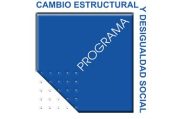Economic marginality and social inequality
Continuities and discontinuities in work itineraries of the superplus workforce. A case study in a suburban district of Buenos Aires
Summary:
The purpose of the research is to contribute to the knowledge of the processes of marginalization and social inequality, starting from the mechanisms (micro and macro) involved in the reproduction and dealing first with the study of the work histories and socio-economic reproductive strategies of households residents in a segregated urban area in the Greater Buenos Aires. Within this framework, the target is to study the processes of socio-occupational mobility/ /immobility; integration/ segregation; economic inclusion/ marginalization that operate on career paths, as well as the conditions of production and reproduction of the most vulnerable sectors in the socio- occupational structure. We start from the hypothesis that the sectors that are identified as surplus workforce associated with economic marginality, even in a context of new economic working conditions as well as political- distributive conditions, have not presented qualitative changes in relation to the barriers that hinder their socio- occupational mobility.
A methodological design will be developed based on a case study, which will allow us to reconstruct, describe and understand the retrospective work histories from a dual strategy of building qualitative and quantitative data. In a first stage, statistical processing will be performed starting with the application of variable trajectories to a database based on a sample of 550 individuals. As a second step, in-depth interviews and focus groups are proposed, in addition to the statistical analysis of the trajectories with cases that will be selected through a purposive sample, according to criteria based on the results of quantitative analysis of the work histories. The purpose of the qualitative strategy is to identify, reconstruct and characterize in a comprehensive way, the reproduction of the economic marginality, as well as understand the mechanisms at a micro-social level that influence the processes of mobility or stagnation of the trajectories and the welfare of urban households.
Members:
Director:
Agustín Salvia
Formed Scholars/Researchers:
Guillermina Comas (coordinator)
María Laura Raffo
Eduardo Donza
Fellows in Trainning/Assistants:
Juan Ignacio Bonfiglio
Victoria Ventura
Edith Vallejos
Marina Goldman
Agustina Marquez
Daniela Leotta
Our written production can consulted in the following link: Digital library
